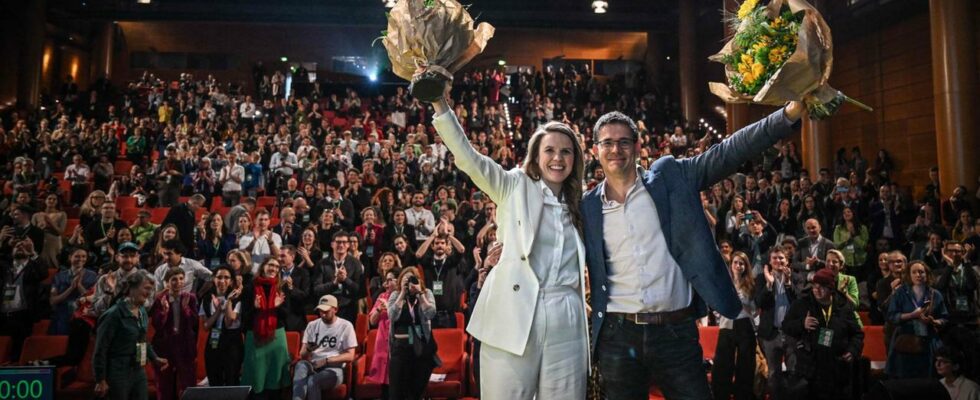News and background
European elections 2024
European elections
While the European Greens played a key role in environmental protection legislation, they were unable to prevent the new asylum rules. The elections could now result in the loss of more than a third of the seats.
When the Greens entered the new EU Parliament five years ago, they came with a powerful mandate: they had won 20.5 percent of the votes in times of climate issues, Fridays for Future and Greta Thunberg in Germany.
This made them the second strongest German force in the European parliament, behind the CDU/CSU and well ahead of the SPD. The party went to Brussels with corresponding self-confidence and worked hard on the European Commission’s “Green Deal”.
“If you look at what the Commission has proposed over the last four and a half years and what we have implemented, there is a lot of the Green Party’s election programme in there,” explained parliamentary group leader Terry Reintke in an interview with the ARD Studio BrusselsTogether with the Dutchman Bas Eickhout, the German is also the top candidate of the European Greens.
Armaments as a “green issue”
But times are different now. Now it’s about war and peace, about billions for armaments. Sergey Lagodinsky doesn’t think that the classic green issues are being neglected.
He is number two on the German Greens’ list of candidates for Europe and has been in the EU Parliament for five years. “First of all, the issues that concern armaments are actually peace issues,” says Lagodinsky, so he sees it as a “quintessentially Green issue.”
And since the issue of climate continues to be of global importance, especially for future generations, it is also important for the European Greens. That is why climate protection is right at the beginning of the Greens’ extensive European election program.
Longest program of all major parties
“What protects us” is the title of this program, and it is 113 pages long – more than any other of the major parties. In addition to the climate and the environment, prosperity, social justice, peace and freedom are to be protected.
The plans include an “infrastructure union” of solar plants and wind farms, hydrogen networks and fiber optic cables, power lines and railways, as well as good hospitals and schools. The Greens are in favor of expanding the EU and reforms. The unanimity principle should apply less often.
In agricultural policy, they want to apply much stronger ecological standards instead of the flat-rate premiums that are common today. By 2030, organic farming should have reached a share of 25 percent. The Greens are also campaigning for “a ban on glyphosate in the EU as quickly as possible.” The approval of the pesticide was only recently surprisingly extended by the Commission.
When it comes to asylum policy, the Greens in Berlin and the Greens in Brussels recently had a clear difference of opinion: in the federal government they supported the European compromise, but in the European Parliament they voted against it.
The package was passed – and that must be accepted, says Lagodinsky. But now it is important to strengthen non-governmental organizations that monitor compliance with fundamental rights when implementing the new asylum rules. These organizations, in turn, must not be criminalized – “like sea rescue recently.”
The entire Green group in the European Parliament recently had 72 members. According to forecasts for the upcoming election, however, it must fear significant losses: according to current polls, it would still get 40 to 50 seats at most, a good third of which would still come from Germany.

